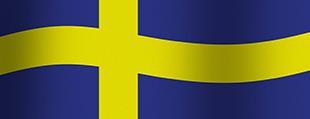Tim Bowen makes sure you don’t go berserk with his handy guide to words from Scandinavian languages.

Incursions by the Norsemen and Danes into the British Isles influenced the language of the indigenous peoples for many years and the introduction of many words of north Germanic origin can be attributed to this period.
The adjectives cosy and snug (both meaning warm, comfortable and safe) are believed to derive from Old Norse, as is the verb to hug.
In more recent times, a number of terms from the Scandinavian languages have made their way into English. These include words with their origins in Sweden, such as moped (a shortening of the Swedish for ‘engined cycle with motor and pedals’), ombudsman (someone whose job is to deal with complaints that people make about an organization or a particular type of business), orienteering (a sport in which people try to find their way on foot across an area of countryside using a map and a compass) and tungsten (literally ‘heavy stone’, a metal used in steel production).
Norwegian gives us the adjective berserk, used in the phrase to go berserk (to become violent and uncontrolled because you are very angry), which is believed to have its origins in the Berserkers, a particularly violent group of Norse warriors. We also get the word ski from Norwegian and the term slalom for a particular type of skiing event, as well as the geographical feature fjord, for which the coast of Norway is rightly famous.
Teaching tip: ask learners to use a search engine to find the meaning (and, if possible, the original meaning) of these English words of Scandinavian origin: floe, smorgasbord, fartlek, maelstrom and lug. Tip: the question ‘What is the origin of the word …’ will usually provide an answer.



No comments yet